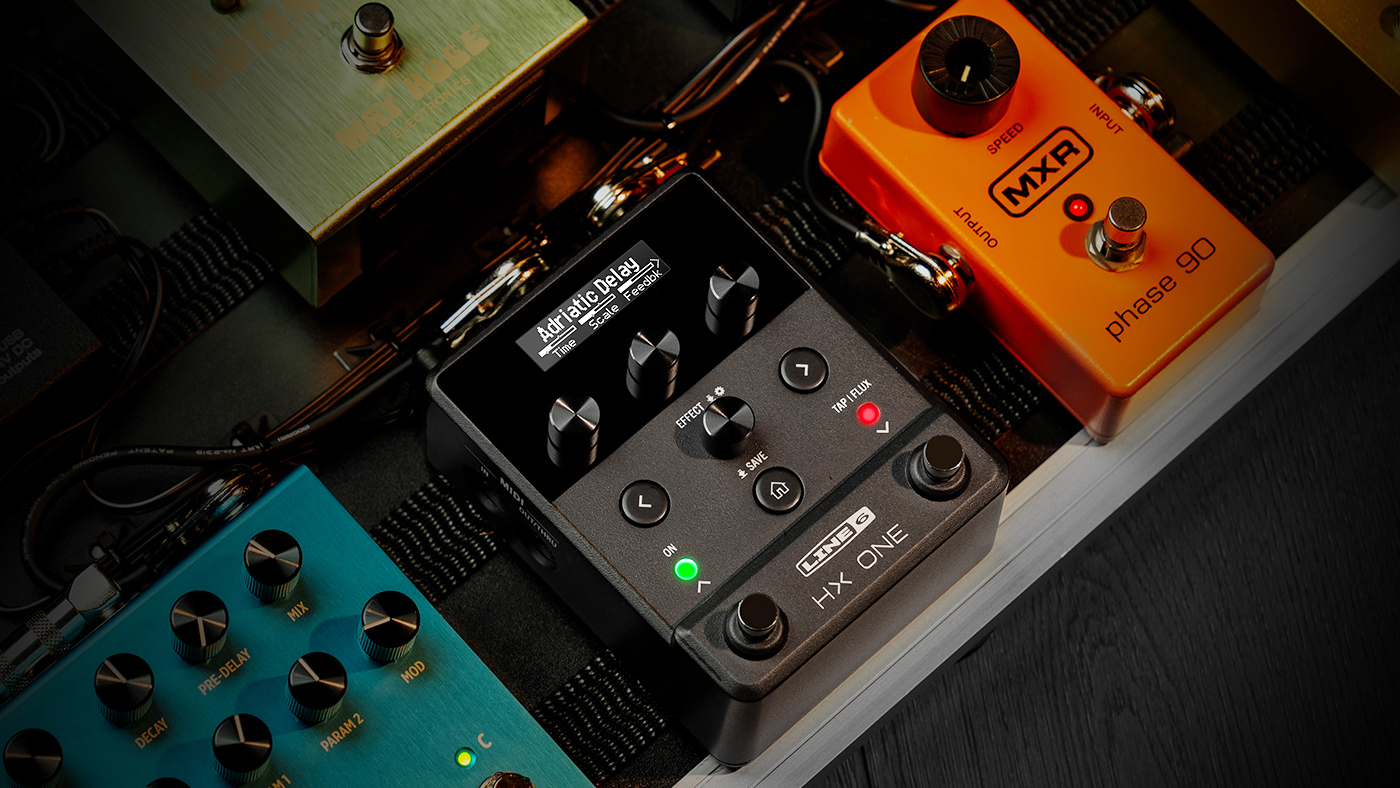MusicRadar Verdict
A new way to fit Helix effects into more rigs, the HX One puts a huge array of classic and creative sounds at your feet. If your struggle for pedal space is real, this could open up a solution and new inspiring sonic possibilities.
Pros
- +
Great sounds – and loads of them
- +
Compact and intuitive
- +
Excellent firmware support
Cons
- -
Might not suit some pedalboard scenarios / flexibility needs
MusicRadar's got your back
Line 6 HX One: What is it?
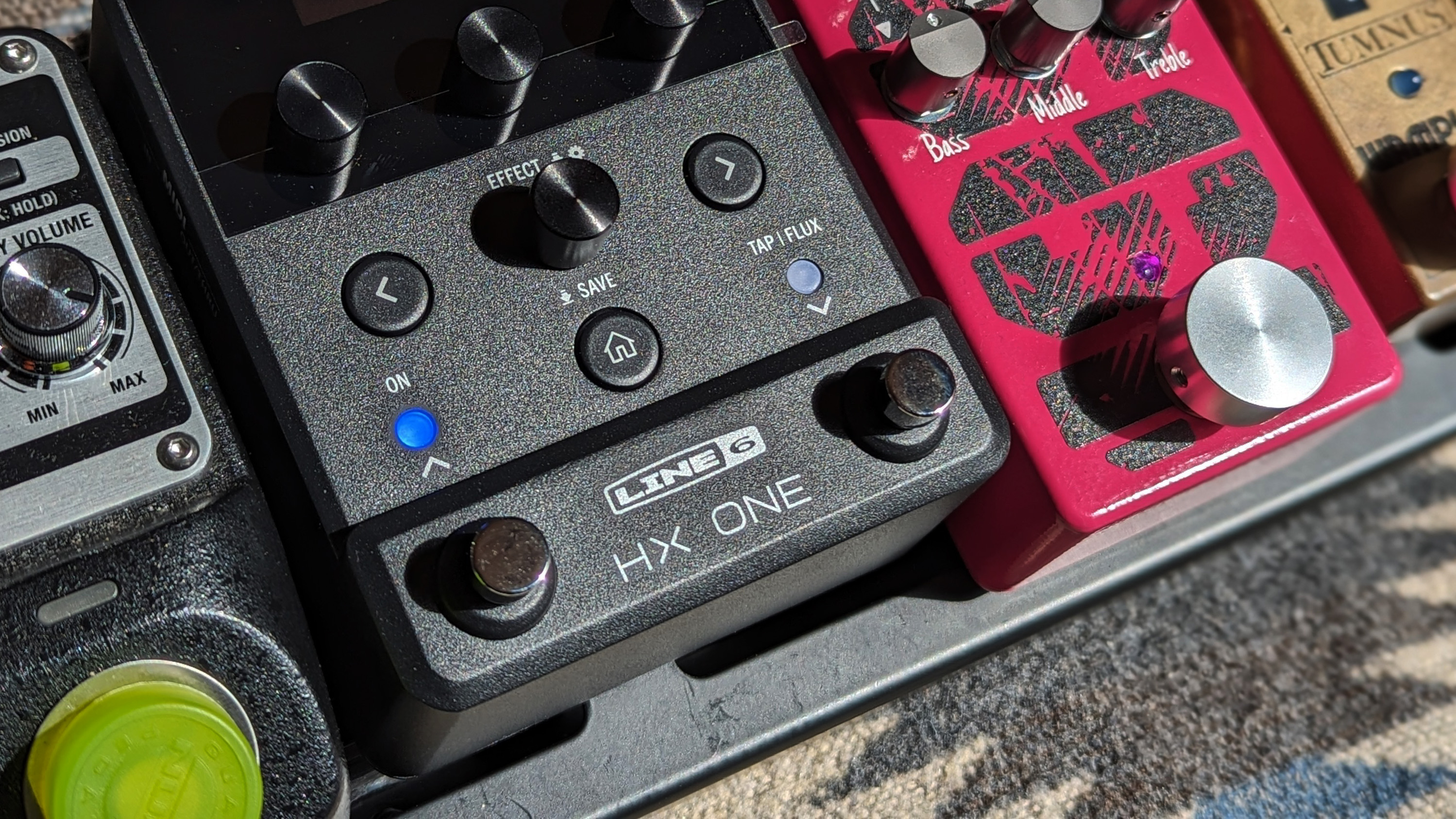
Line 6 wasn’t just ahead when it came to modelling innovation in the late '90s, when the competition inevitably arrived, the company managed to do something with its Helix hardware that none of them quite managed to match; it created a wider appeal.
With the arrival of the HX Stomp, investing in a digital amp modeller and multi-effects unit no longer meant going big with a floorboard. It wasn’t necessarily even about replacing things anymore; the Stomp could live alongside your pedals or amp if you wanted. Moreover, the asking price opened pro-level modelling to new players – with long-term firmware updates from Line 6 that set a standard for the industry.
But while we wait for the inevitable Helix 2, Line 6 wants to widen the potential appeal of its tech further. Its scaling down some more – two footswitches on a pedal that’s aimed at bringing Helix to any pedalboard. It can even be fuelled by your 'board's power supply. But just how scaled down is the HX One in terms of usability?
There are no amp models included here; it’s effects only. A mini Helix HX Effects? Not really. There are over 270 HX effects included here but you can only use one at a time – not even a chain of two within the pedal. Isn’t that a bit limiting? This is where I’d beg to differ – Line 6 is thinking about winning new fans again here.
Line 6 HX One: Performance and verdict
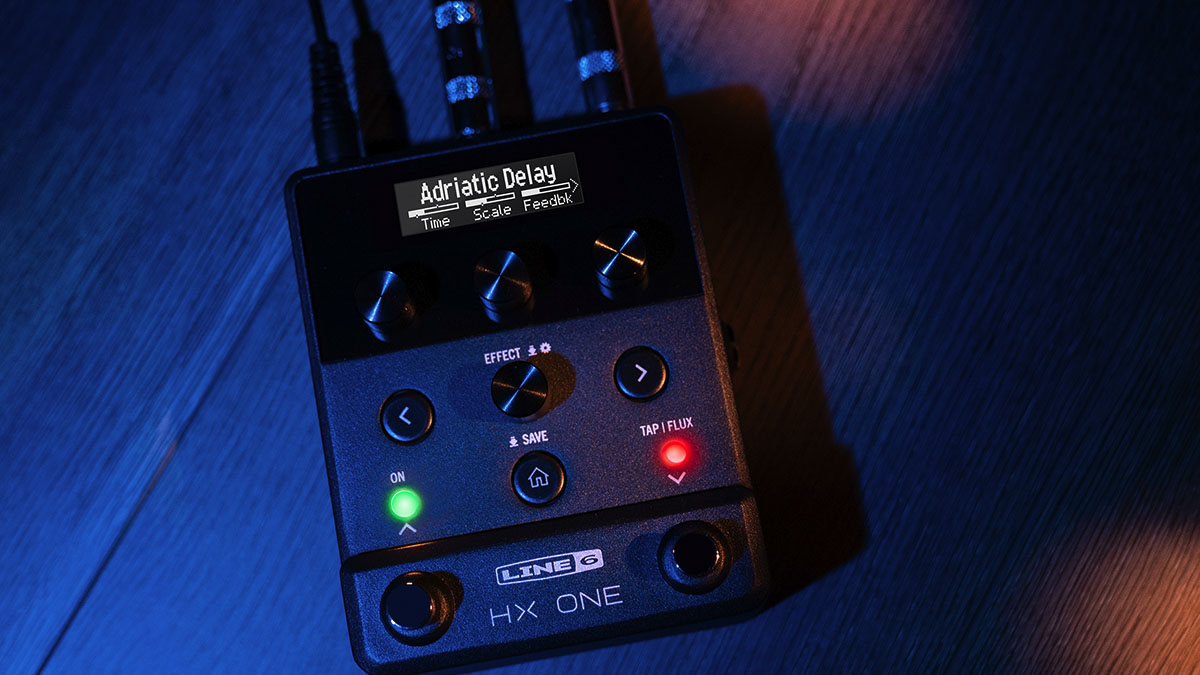
It feels that this is aimed squarely at those of us who aren’t interested in building patches and just want a great selection of effects to choose from. Maybe a harmonic tremolo sound to use on one song, or even a looper for another part – and an otherworldy filter elsewhere. The HX One not the smallest pedal in the world but it could actually be a huge space saver for those who need to dip in and out of the wonderful, and sometimes weird, effects world. It's kind of like Line 6’s equivalent of Eventide’s H9.
Line 6 actually went in this direction before with the session player favourite M9 and somewhat underrated M5 Stompbox Modeller well over a decade ago. It's worth noting that even now, Line 6's effects on those units are considered studio-worthy by players including Tim Pierce and Tom Bukovac.
The HX One is significantly smaller than those pedals; shallower than a Boss compact pedal at 119mm, and about 1.5 times wide. It will fit nicely onto most 'boards – and could be appealing for minimal setups looking for Swiss Army Knife versatility.
Want all the hottest music and gear news, reviews, deals, features and more, direct to your inbox? Sign up here.
With stereo and midi in / out, plus Line 6 FS 3 and 4 expression pedal in, the boxes for today's rig connectivity needs are assured. But that screen is very… minimal, isn’t it?
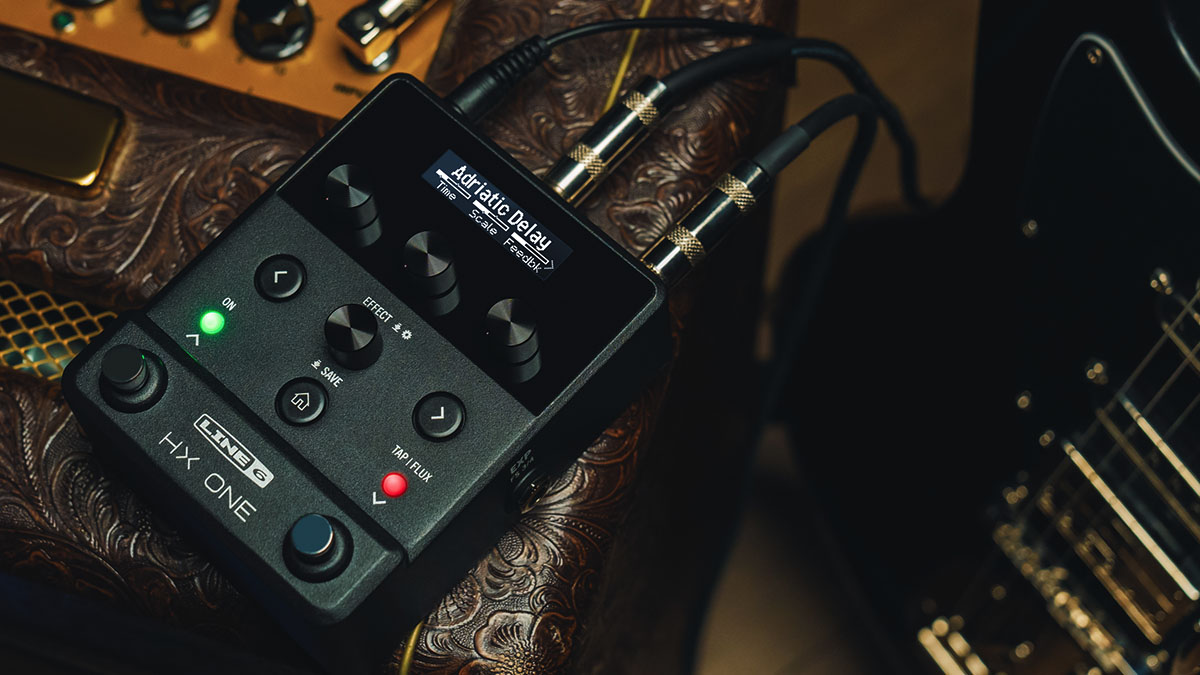
It makes the most of its dimensions to work very well; pressing the effects knob in the centre down takes you through the effects categories. Once you’ve scrolled to the effect type you want, release the knob and you can then scroll through the different effects for the time by turning the same knob. The three controls above then change the parameters as shown on the screen. The page left and right buttons will then bring up additional parameters.
I'm not the biggest fan of scrolling through parameters, but I was actually surprised how fast the HX One felt like a familiar part of my pedalboard because of the control and menu design
Then there are two ways to save; either save it as a preset slot, or press the left and right buttons together so your settings become the default sound for that effect in future. I.E. You don’t want to commit to a preset slot, but would like to be more in your preferred sonic ballpark as a user default when you bring up that effect again. With no signal chains to build within the HX One, it’s quick to use and intuitive, even if you’re new to the series. I'm not the biggest fan of scrolling through parameters, especially when I have a guitar strapped on me, but I was actually surprised how fast the HX One felt like a familiar part of my pedalboard because of the control and menu design.
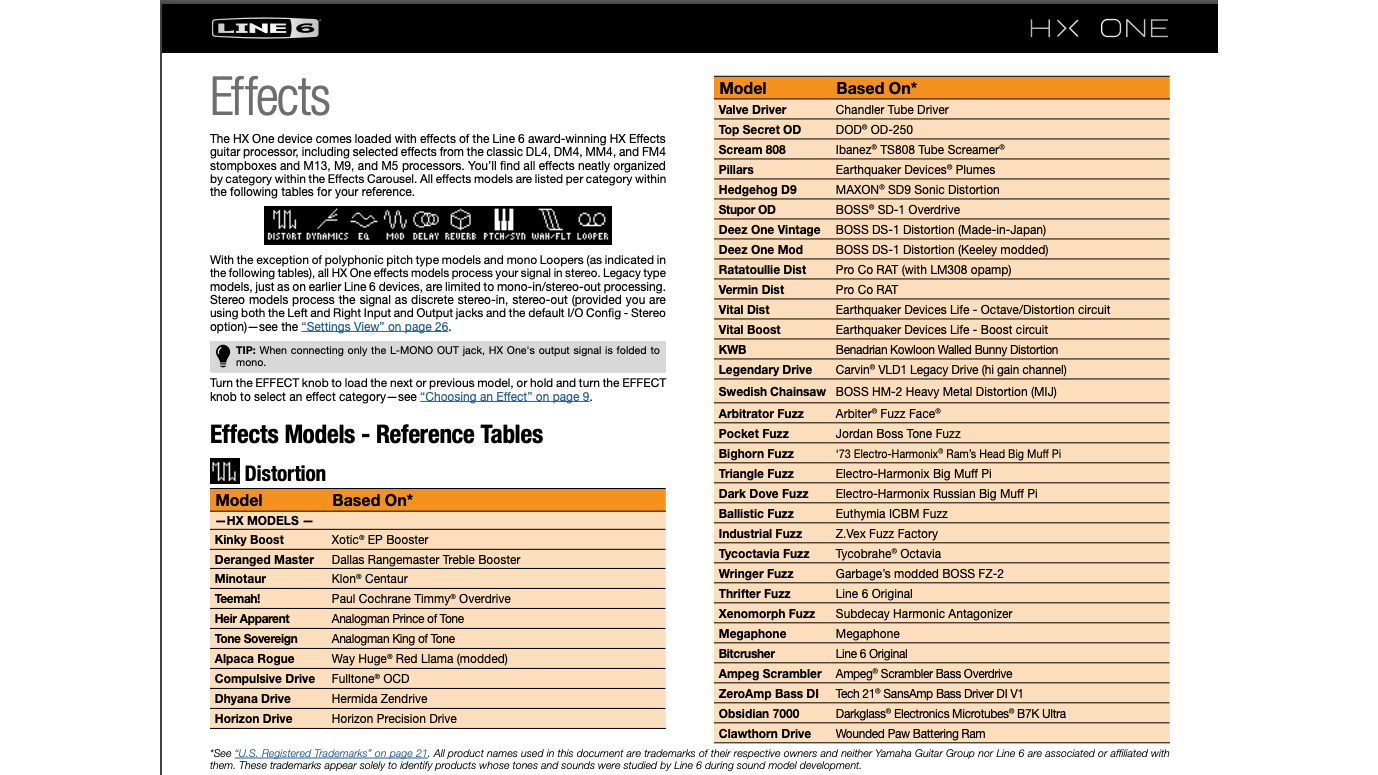
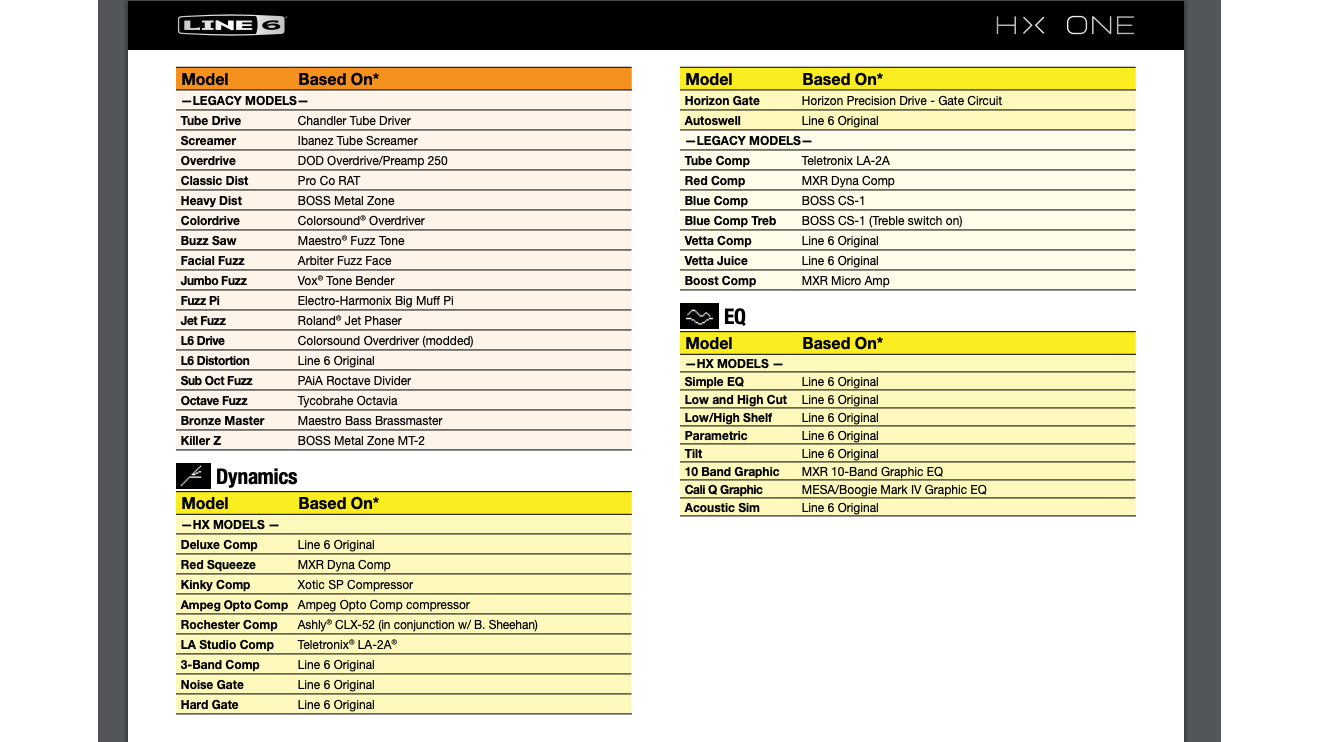
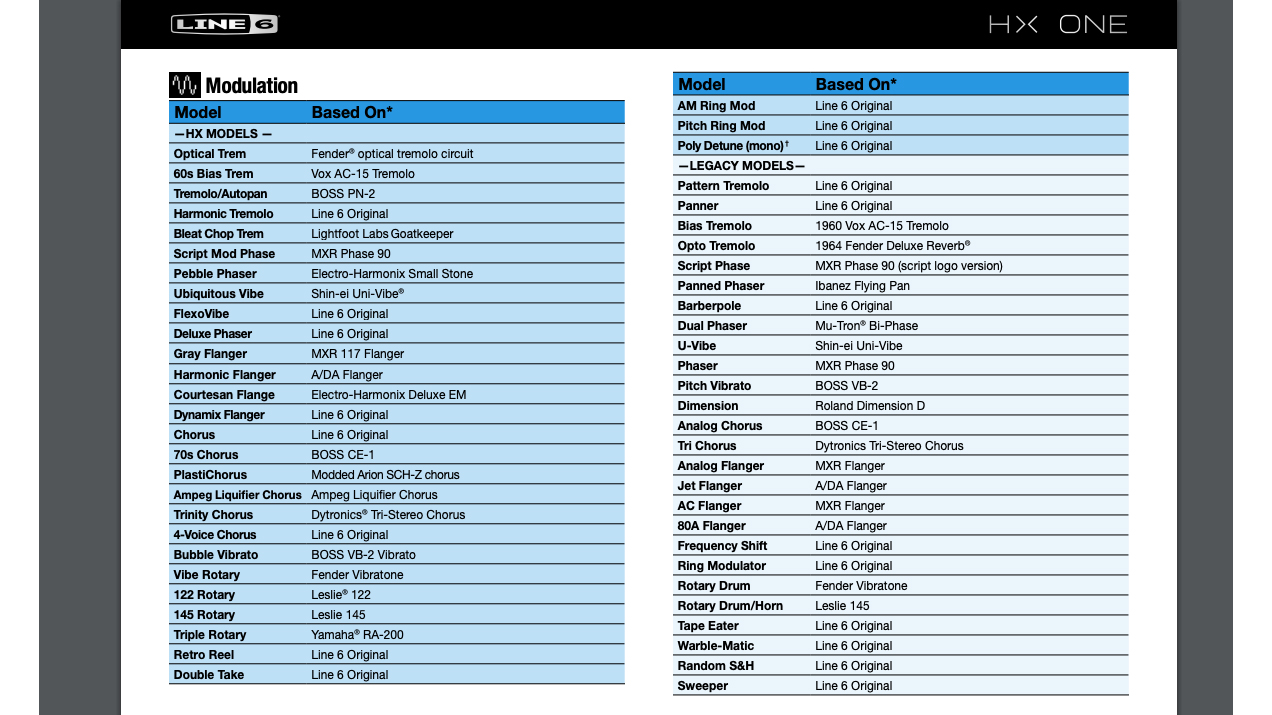
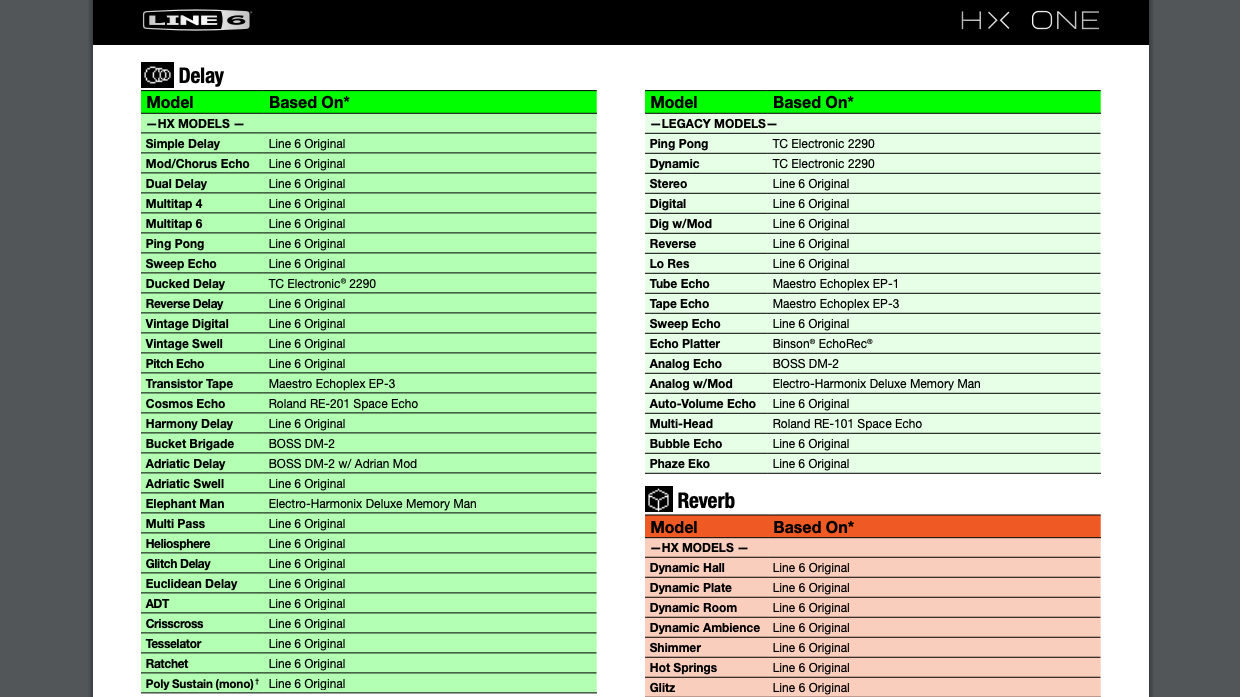
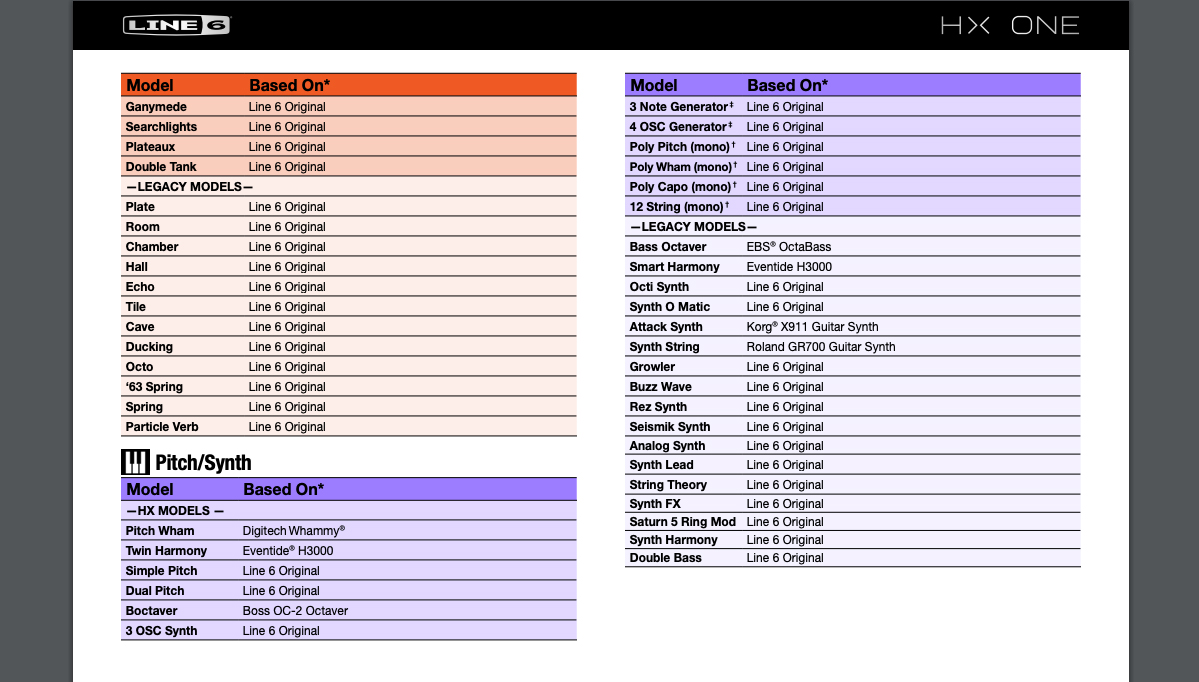
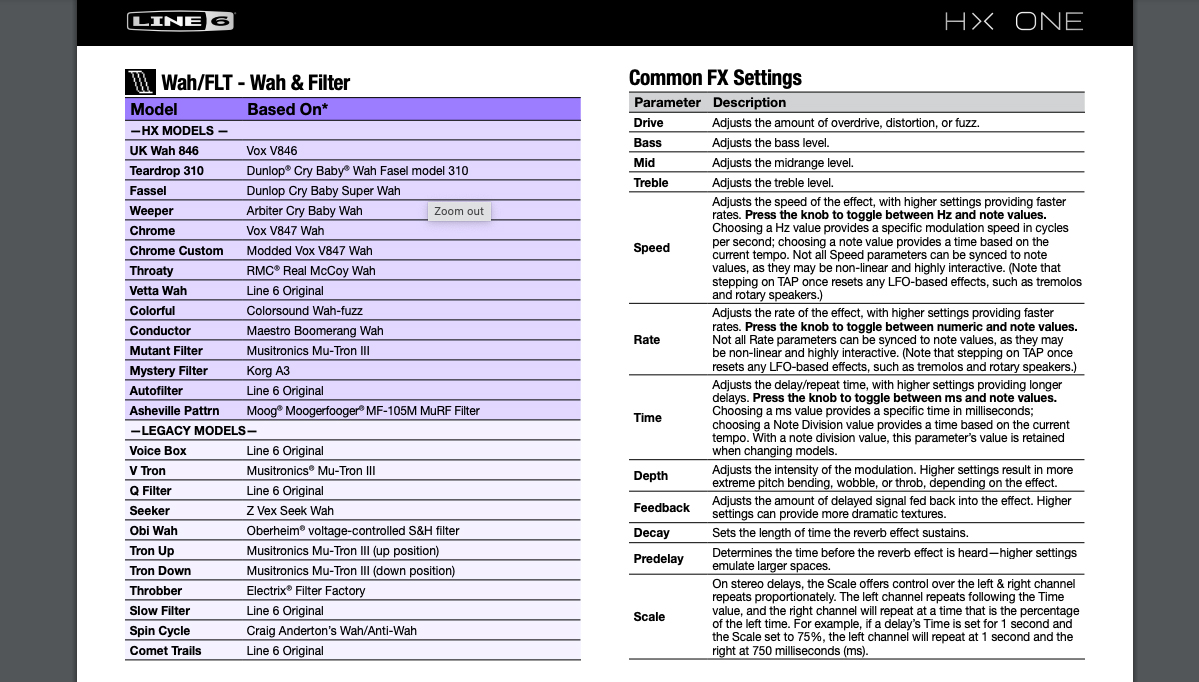
All the effects from the rest of the Helix range are present – listed above. They represent proven and constantly expanding used by pros including Bumblefoot to Kurt Ballou, Dustin Kensrue, Stephen Carpenter and Graham Coxon. From Klon, Tube Screamer and Rat-type overdrives to lush Line 6-designed sounds like the Ganymede reverb and Sweep Echo, there are all the classics and well beyond delivered here. Nobody should be found wanting and it’ll get effects updates with firmware going forward.
The big question here is with so many effects you can bring into the chain in one pedal, how do you solve the obvious conundrums of dialling them up quickly in a set and slotting them into the right place in your signal chain if you’re not a MIDI user? For example, you probably won’t want the Bucket Brigade delay in the place in your chain as a fuzz.
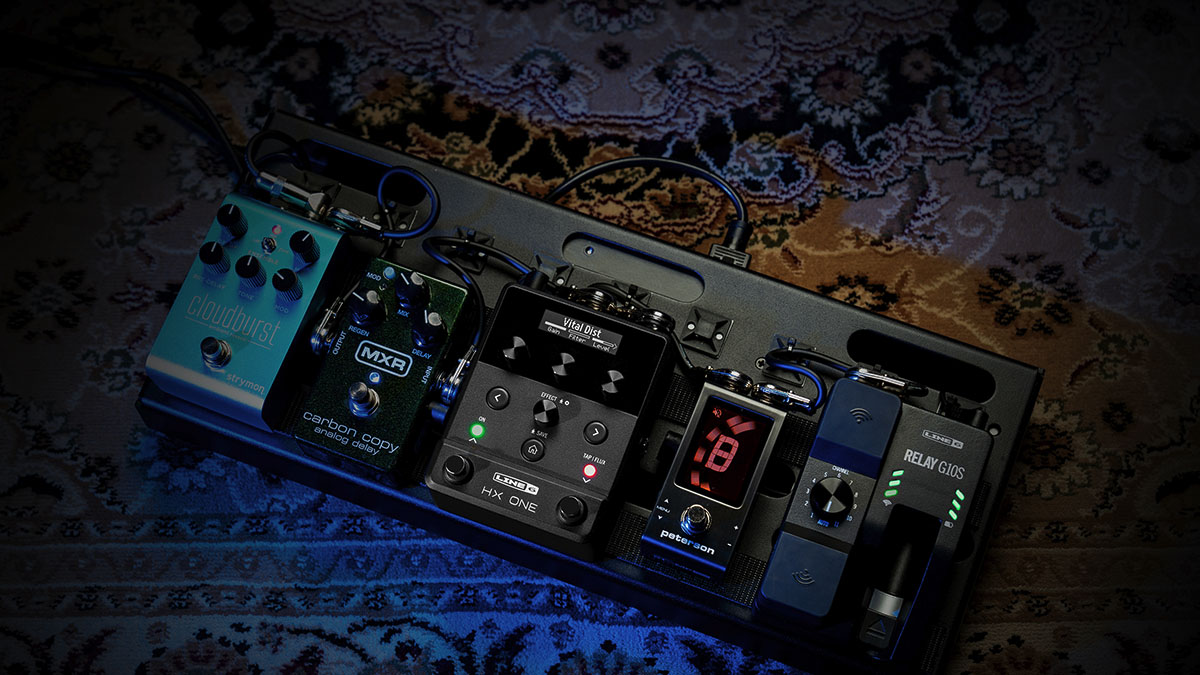
After exploring the sounds, the Flux / Tap control on the second footswitch reveals itself as a real asset that enhances creativity
For the first, you’d be wise to order your presets logically to dial them up and down in a gig set scenario. Physically, pedal order is an obvious challenge and FX send and return comes into play with the four-cable method. Here, whenever you switch to a drive preset HX One will put it at the front of your amp, with a time-based effect it will place the effect after the amp. As part of a whole pedalboard that cable method not exactly a neat solution but it’s hard to see how Line 6 could have made this any better with regards to realistic options. Personally I'd be happy finding an ideal spot for it on my 'board for the most potential uses; for me that would be the modulation territory.
After exploring the sounds, the Flux / Tap control on the second footswitch reveals itself as a real asset that enhances creativity. It’s kind of an onboard expression device to some degree, allowing you to automate different parameters between two set values. For example, press the switch to ramp up an overdrive's gain or delay feedback. It's inspiring in the way it can musically create dramatic moments and emphasis. A nice bonus here from Line 6 for sure.
So is the onboard chromatic tuner – another potential space saver for players. Just press both footswitches together for two seconds to activate. Then press either footswitch or the home button to exit tuner mode.
onsidering the next pedal in the affordability scale is the HX Stomp is $699, the price for the HX One feels right
If the $299/£299 seems steep to you for a single pedal investment, consider how weighty the quality and quantity are. It’s a chameleon for your pedalboard with a huge range of sounds to explore. And considering the next pedal in the affordability scale is the HX Stomp is $699, the price for the HX One feels right.
Another impressive Helix chapter to widen the appeal – we already know the sounds and range of effects are excellent but this brings Line 6’s flagship sounds to new players who aren’t interested in making the full step into a modelling rig
MusicRadar verdict: A new way to fit Helix effects into more rigs, the HX One puts a huge array of classic and creative sounds at your feet. If your struggle for pedal space is real, this could open up a solution and new inspiring sonic possibilities.
Line 6 HX One: Hands-on videos
Tim Pierce
Corey Congilio
Mike Cole
Line 6 HX One: Specifications
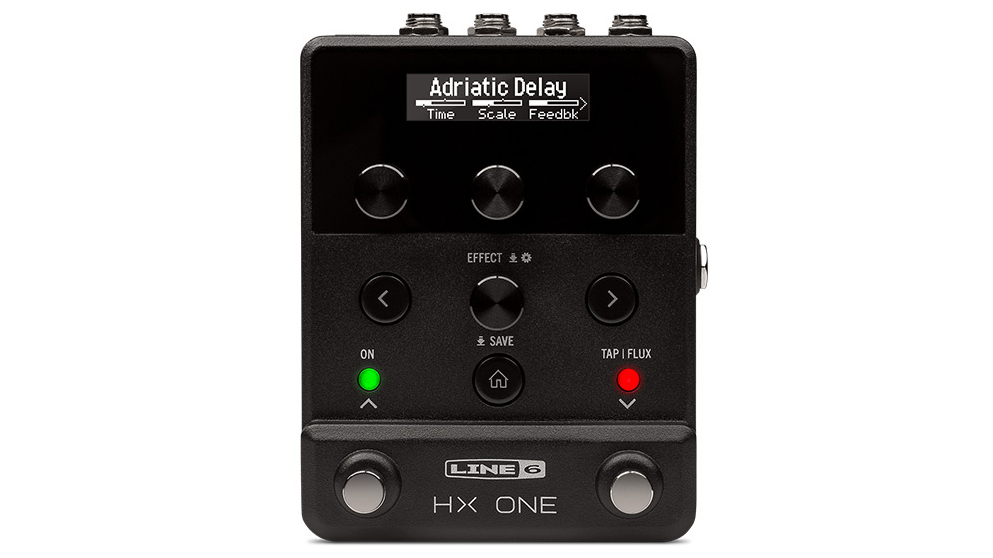
- Controls: 3 x parameter rotary knobs, Page left and right buttons, home/save button, Effect select pushable rotary control, effect on/off footswitch, Tap tempo/Flux footswitch
- Features: 273 effects including Switch and Shuffling looper), stereo in/out, MIDI in / out/thru, USB for firmware updates, chromatic tuner
- Bypass: Choice of Buffered or True
- Power: 9.6VDC-500mA adapter (included)
- Dimensions: (W x D x H): 96 x 125 x 62 mm
- Current Draw: 500mA
- CONTACT: Line 6

Rob is the Reviews Editor for GuitarWorld.com and MusicRadar guitars, so spends most of his waking hours (and beyond) thinking about and trying the latest gear while making sure our reviews team is giving you thorough and honest tests of it. He's worked for guitar mags and sites as a writer and editor for nearly 20 years but still winces at the thought of restringing anything with a Floyd Rose.
